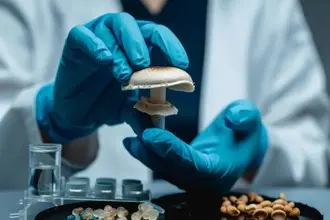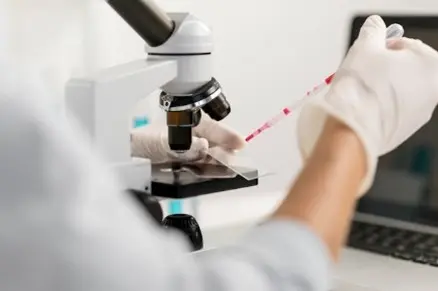Mushrooms have captivated human cultures for centuries, not only as a source of food but as powerful medicinal agents. From ancient texts and Indigenous traditions to cutting-edge modern research, the medicinal properties of mushrooms are increasingly being recognized for their healing potential. Let us explore how ancient wisdom about mushrooms meets modern science, revealing the extraordinary health benefits of these fungi.

Ancient Wisdom: Mushrooms in Traditional Medicine
- China and the Use of Reishi
In traditional Chinese medicine (TCM), mushrooms have played a prominent role for over 2,000 years. One of the most revered is the Reishi mushroom (Ganoderma lucidum), known as the “Mushroom of Immortality.” Reishi was prized for its ability to promote longevity, boost the immune system, and reduce stress. Ancient Chinese medical texts describe it as an elixir for vitality, recommending its use to balance Qi (vital energy) and enhance spiritual wellbeing.
- Japan and Shiitake
The Shiitake mushroom (Lentinula edodes) has a similarly ancient history, particularly in Japan, where it was used not only as a dietary staple but as a medicinal food. Traditional Japanese medicine attributed shiitake with the ability to increase energy, improve circulation, and strengthen the immune system.
- Siberia and Chaga
Siberian shamans and Indigenous people have long used Chaga mushroom (Inonotus obliquus), calling it the “Gift from God” or the “Mushroom of Immortality.” In these cultures, Chaga was used to treat a variety of ailments, including digestive issues and infections, and to enhance overall vitality.
- Central and South America
In Central and South American Indigenous cultures, psychoactive mushrooms, such as those containing psilocybin, were used in sacred rituals for their hallucinogenic properties. Shamans employed these mushrooms to enter trance states and connect with the spiritual realm, but they were also recognized for their therapeutic benefits, such as alleviating anxiety, depression, and other mental health conditions.

Modern Science: Validating Ancient Claims
Recent scientific research advances confirm what many ancient civilizations intuitively understood, mushrooms possess powerful health benefits.
- Immunomodulation and Cancer Research
One of the most exciting areas of research involves the role of mushrooms in modulating the immune system. Reishi, Shiitake, and Turkey Tail (Trametes versicolor) are known to contain beta-glucans, complex sugars that can enhance immune function. Studies have shown that these beta-glucans help activate immune cells such as macrophages and natural killer (NK) cells, which are crucial in defending against infections and fighting cancer cells.
For instance, a 2012 clinical trial found that breast cancer patients who took turkey tail mushroom capsules recovered immune function faster after radiation therapy. Similarly, Reishi has shown promise in reducing tumour growth and aiding cancer patients in recovery due to its anti-inflammatory and antioxidant properties.
- Brain Health and Cognitive Function
Modern research is also examining how mushrooms can benefit brain health. The lion’s mane mushroom (Hericium erinaceus) has emerged as a potential treatment for neurodegenerative diseases like Alzheimer’s. Research published in Biomedical Research demonstrated that lion’s mane promotes the production of nerve growth factor (NGF), a protein essential for the maintenance and regeneration of neurons, which could help protect against memory loss and cognitive decline.
- Mental Health and Psilocybin
Psilocybin, a compound found in certain mushrooms, is at the forefront of research into mental health treatments. Clinical trials have shown that psilocybin can help alleviate depression, anxiety, and PTSD, often providing lasting relief after just one or two treatments. A landmark study at Johns Hopkins University found that psilocybin therapy was highly effective in treating patients with depression, with some experiencing improvements for over a year after the initial dose. This research is sparking renewed interest in the therapeutic potential of psychoactive mushrooms.
- Anti-inflammatory and Antioxidant Benefits
Mushrooms like Chaga and Cordyceps (Ophiocordyceps sinensis) are packed with antioxidants, which help protect the body from oxidative stress and inflammation. Oxidative stress is a leading factor in chronic diseases, including heart disease and diabetes. Studies have shown that compounds in mushrooms, such as polysaccharides and triterpenoids, can reduce inflammation, regulate blood sugar levels, and improve heart health.

Where Ancient Wisdom and Modern Science Intersect
The resurgence of interest in medicinal mushrooms is not merely a trend but a reflection of the powerful intersection between ancient traditions and modern scientific validation. What Indigenous healers knew through experience, science is now uncovering through rigorous research. The therapeutic potential of mushrooms spans various fields, from cancer and immune health to cognitive function and mental wellness.
Incorporating medicinal mushrooms into modern health regimens may offer numerous benefits, with very few side effects. Whether in the form of teas, supplements, or whole foods, these fungi are becoming an increasingly popular natural remedy.
Conclusion
From the shamanic traditions of Siberia to the herbal pharmacies of China, mushrooms have been revered for their healing properties for millennia. Today, modern science is beginning to confirm these ancient claims, offering a deeper understanding of how mushrooms can support health and wellbeing. As research continues, mushrooms may play an even larger role in the future of medicine, bridging the gap between ancient wisdom and modern science.
Embrace the healing power of mushrooms, and experience for yourself the benefits these remarkable fungi can bring to your health and wellness journey.